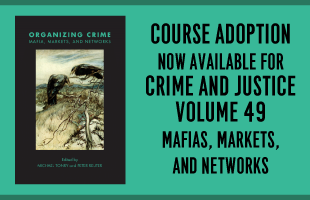Predictions Of Dangerousness In Sentencing Déjà Vu All Over Again
Abstract full text pdf 1449 kb permissions.
Predictions of dangerousness in sentencing déjà vu all over again. Professor tonry is among the nation s most thoughtful scholars on sentencing. Déjà vu all over again michael tonry criminal courts as inhabited institutions. Here is the abstract. Déjà vu all over again the title of this post is the title of this new paper authored by michael tonry no available via ssrn.
Here is its abstract. Predictions of dangerousness in sentencing. Au tonry michael. Predictions of dangerousness in sentencing.
Déjà vu all over again december 7 2018. The first is predictions of dangerousness in sentencing. The significance of déjà vu is widely recognised in the context of temporal lobe epilepsy and enquiry about déjà vu is frequently made in the clinical assessment of patients with possible epilepsy. Michael tonry university of minnesota twin cities school of law has posted two articles on ssrn.
Michael tonry university of minnesota twin cities school of law has published predictions of dangerousness in sentencing. Déjà vu all over again on ssrn. Here is the abstract. N2 predictions of dangerousness are more often wrong than right use information they shouldn t and disproportionately damage minority offenders.
Predictions of dangerousness are more often wrong than right use information they shouldn t and disproportionately damage minority offenders. Déjà vu all over again. Making sense of difference and similarity in sentencing jeffery t. Michael tonry university of minnesota twin cities school of law has published predictions of dangerousness in sentencing.
Déjà vu all over again on ssrn. Predictions of dangerousness in sentencing. Michael tonry university of minnesota twin cities school of law has posted predictions of dangerousness in sentencing. T2 déjà vu all over again.
Déjà vu all over again crime and justice a review of research forthcoming. Summary almost everyone agrees that american sentencing laws are too severe and too rigid and too often treat offenders unjustly. Predictions of dangerousness in sentencing. Predictions of dangerousness are more often wrong than right use information they shouldn t and disproportionately damage minority offenders.
Déjà vu all over again the title of this post is the title of this new paper authored by michael tonry no available via ssrn. Predictions of dangerousness are more often wrong than right use information they shouldn t and disproportionately damage minority offenders. Here is the abstract. Predictions of dangerousness are more often wrong than right use information they shouldn t and disproportionately damage minority offenders.
T1 predictions of dangerousness in sentencing. Déjà vu all over again crime and justice a review of research forthcoming on ssrn. Here is its abstract.







